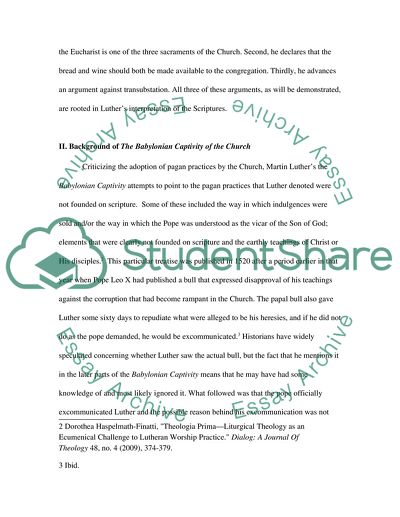Cite this document
(“Martin Luther's Eucharist Research Paper Example | Topics and Well Written Essays - 1750 words”, n.d.)
Martin Luther's Eucharist Research Paper Example | Topics and Well Written Essays - 1750 words. Retrieved from https://studentshare.org/religion-and-theology/1641577-martin-luthers-eucharist
Martin Luther's Eucharist Research Paper Example | Topics and Well Written Essays - 1750 words. Retrieved from https://studentshare.org/religion-and-theology/1641577-martin-luthers-eucharist
(Martin Luther'S Eucharist Research Paper Example | Topics and Well Written Essays - 1750 Words)
Martin Luther'S Eucharist Research Paper Example | Topics and Well Written Essays - 1750 Words. https://studentshare.org/religion-and-theology/1641577-martin-luthers-eucharist.
Martin Luther'S Eucharist Research Paper Example | Topics and Well Written Essays - 1750 Words. https://studentshare.org/religion-and-theology/1641577-martin-luthers-eucharist.
“Martin Luther'S Eucharist Research Paper Example | Topics and Well Written Essays - 1750 Words”, n.d. https://studentshare.org/religion-and-theology/1641577-martin-luthers-eucharist.


